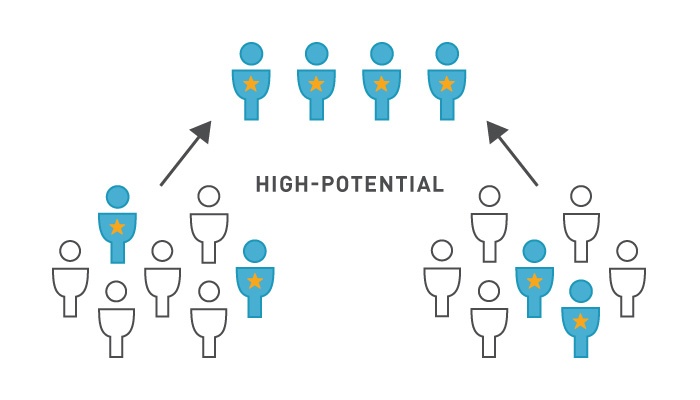4 + 4 Valuable Suggestions to Enhance Your Talent Growth Strategies and Abilities
Over the years, I’ve worked with many leaders who are trying to get better at developing talent in the workplace. In particular, they’re focused on top performers and high-potentials. Leaders love these people because they seem like they don’t require much management or leadership.
But in reality, HiPos need development, and it takes skill to develop talent. So what works? Let’s take a look at the following four tips to improve your talent development process and skills.
1. Be Vocal To Cultivate Talent
First, you need to talk to your management team about talent. What are high-potentials really good at? What do they enjoy doing the most? Don’t just talk about the business goals and projects they’re working on – that’s only part of the equation.
Help your talent start thinking about the future. Make it clear you want to help them reach their goals. To be a strong cultivator of talent, you have to expand people’s thinking. But you don’t have to have all the answers.
As a matter of fact, you don’t have to have any answers. It’s not about you imparting your wisdom. So take the pressure off yourself. They will be much more committed to their own ideas. More than anything else, you just need to show you care.
2. Connect Opportunities To Employee Skills
One way to show you really care about top-performing talent is to help them identify opportunities to practice the skills they’ll need in the future. Again, don’t feel like you need to provide ready-made answers. This process should be a collaborative effort.
Work together to find these opportunities. With a little discussion, you’ll probably find high-potentials can come up with some great ideas.
3. Set Goals For New Opportunities
Create a plan for new opportunities. Take time to define what successful growth will look like for your talent.
What are they hoping to gain from the experiences? Get specific in terms of how they want to change and what they will do differently in the future after this opportunity. Too often, leaders send people to work on special projects or take on stretch assignments simply for the experience.
I’m all for new experiences – they’re life’s greatest teachers – but I urge you to define the “why” beforehand. Take the time to specify what learning your high-potentials hope to get out of an opportunity.
That will help you gauge the true impact of “more experience.” Also, write this down in clear, straightforward language that a third grader could understand. Complex is not better, it’s just complex.
4. Help Talent Apply Learning
Have high-potentials specify how they plan to implement their learning in the future. This will allow you to reinforce positives and provide feedback that helps them build on successes. When you meet with them, ask how they have applied this learning – every time.
Consistent follow-up helps show you care about their development. Soon, you will find they offer up these insights before you even have to ask. That’s your measure of success.
Of course, these are just a few elements of a successful talent development process. But following these steps consistently will help enhance your impact on others. There are a host of other concepts important for developing talent in organizations. Those described above are a few of the most common talent development skills leaders overlook.
Additional Coaching Best Practices
- Recognize that developing people is an ongoing process. The most effective coaches set up a process for identifying development areas, structuring coaching and learning opportunities, setting growth goals and reviewing and monitoring progress to goal. For these top coaches, the development process takes place throughout the year and not just during the annual performance appraisal. For any development plan, it is important to establish specific goals, as well as clear methods used to develop the new competencies. The best coaches review development progress with the individual at least once a quarter.
- Identify unique needs and practice individualized management. To do this, you must get to know and understand each of your direct reports as an individual. Leaders who excel in this competency spend one-on-one time with each of their direct reports to learn about their career aspirations, favorite assignments, strengths and limitations. Based upon these variables as well as the needs of the business, they develop a customized development approach for each person, avoiding a one-size-fits-all development and training strategy.
- Coach, don’t tell. The best coaches avoid simply giving the answer to others. They create a dialogue around issues or goals that enables the other person to draw their own conclusions and actively participate in determining a course of action. By facilitating a discussion around learning, development and growth, these leaders resist the urge to problem-solve or always give helpful advice.
- Provide frequent, constructive and balanced feedback. Timely and constructive coaching feedback is vital to the development process. The strongest coaches consistently give feedback that highlights both positive behavior and development opportunities. They help solve the problem while building the relationship by meeting regularly, sometimes as often as weekly. This helps reinforce development progress and focus both the student and the coach on the importance of the development process.
Ready to learn more about skills you need to help your talent succeed? Visit our page on identifying and developing high-potential employees.







